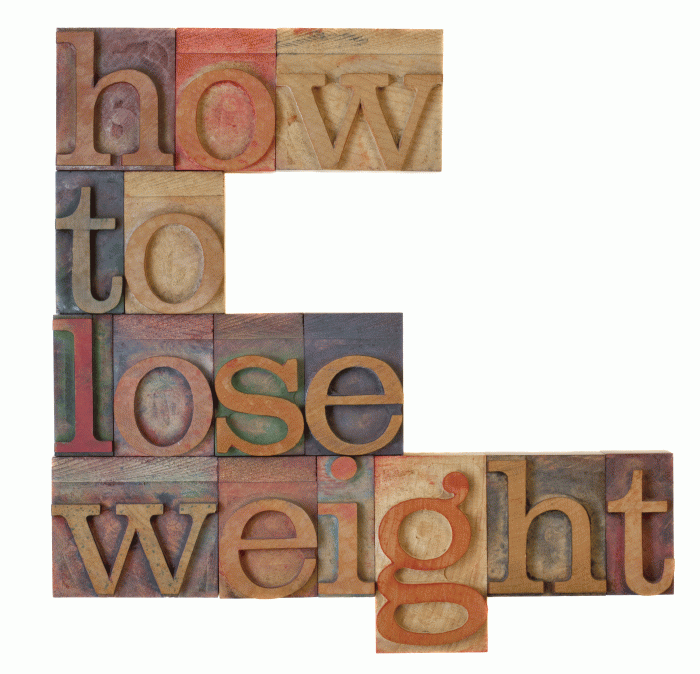
For many people, the start of a new weight loss regime can be stressful. Whether your solution is to cleanse, try a no-carb diet or commit to a three-day-a-week workout plan, many people fail in reaching their goal.
So what's the solution? Fox News Magazine met with a wellness expert, Dr. Ramani Durvasula, who gave us 12 no-fail tips for staying slim.
1. Lock it up. Have junk food in the house? If you can’t just throw it out, then lock it up. Put a sign on the cabinet that says: "Think before you do this." Creating a little extra hesitation can save you several hundred calories.
2. Don’t fall into the “one big meal” mentality. You want to “reward” yourself with a big leisurely dinner after a long day. However, eating regularly gives your body an even level of energy throughout the day and keeps you from binging. Your body needs fuel in the morning to get you through the day; it doesn’t need food to sleep.
3. Stop using food as a reward. When food becomes a “prize,” we interact with it in a different way — we treat it as an entitlement and we often overindulge. Make a list of other rewarding things — read a chapter in a great book, walk around the block, call a friend, watch TV, exercise — but don’t make your reward something that makes your weight loss goal harder to achieve.
4. Give yourself a makeover today. The first step to weight loss is to celebrate yourself today. Embrace your body now. Wear beautiful things. Don’t wait until you reach some future weight loss goal. If you celebrate yourself just as you are, you are more likely to treat your body and mind with respect.
5. Leave the leftovers. Don’t take a lot of leftovers home. We get into a famine mentality with leftovers. Their shelf life is only about one to two days and most of us are socialized to not waste food, so we feel compelled to eat them. Somehow, most people believe that leftovers don’t have calories, but they do. And since we often eat them standing over the sink, we consume more than we intend.
6. Slow down. Slow down when you eat. Stop and ask yourself after each slow bite, "Am I full?" I can almost guarantee you will eat half as much as usual.
7. Choose your booze wisely. Watch the alcohol — if you are trying to lose weight, it can doom you in more ways than one. Alcohol is sugar, but we often think drinks don’t have the same caloric bang as solid food. Think again, because one of those fruity cocktails can easily put you back 300 calories in no time. In addition, the more you drink, the less aware you become, and the more likely you are to lose track of eating.
8. Don’t diet. Cutting out food groups only sets you up for later failure and leaves you unable to regulate diets in the future. Create something sustainable for life.
9. Avoid flab by saying FLAAB. Anytime you feel called to your “vulnerable” foods (ones you have trouble controlling) say the word FLAAB to yourself — am I eating this because I am Frustrated? Lonely? Angry? Anxious? Bored? If the answer is "yes" to any of these, eating a cupcake won’t make the feeling go away; it may even make it worse. Put the food down and find a more useful way to deal with the feeling.
10. Out of sight out of mouth. We often eat bad foods at work because they are easily accessible — the fast food place at the corner, bagels in the coffee room and chocolate in your drawer. Don’t keep these foods close at hand. Instead, bring a bag of healthy snacks into the office — fruits, vegetables, bottles of water — whatever works for you. If you are hungry and there is an apple in the drawer, you are more likely to make a good choice because it's so close at hand.
11. Don't wait until you're starving. Just like with thirst, once you're feeling very thirsty you are likely to be dehydrated. Hunger is an unreliable cue; It can be driven by other factors like emotion, and when we are hungry we are less likely to be able to regulate food intake (i.e. we eat faster). Eating regularly keeps those feelings of hunger at bay and keeps us from overeating.
12. I ate what?? Keep a food journal for a few weeks. Write down what you ate, the time you ate it, where you ate it and how you felt when you ate it. First of all, you will notice you eat more than you think, and secondly, you will learn to identify places, times and emotions that trigger hunger so you can avoid overeating again.
As an expert commentator, host or clinician, Dr. Ramani Durvasula brings impeccable academic credentials, as well as over 15 years of teaching, clinical and research experience. After receiving her doctorate in clinical psychology from UCLA and completing her clinical internship at the renowned UCLA Neuropsychiatric Institute, Dr. Durvasula is currently Professor of Psychology at California State University Los Angeles and a licensed clinical psychologist. She is also the Director of the Psychological Clinic and of Clinical Training at California State University, Los Angeles. She has published over 40 scientific articles and book chapters, and has lectured around the world on a variety of topics related to psychology, health and wellness.
